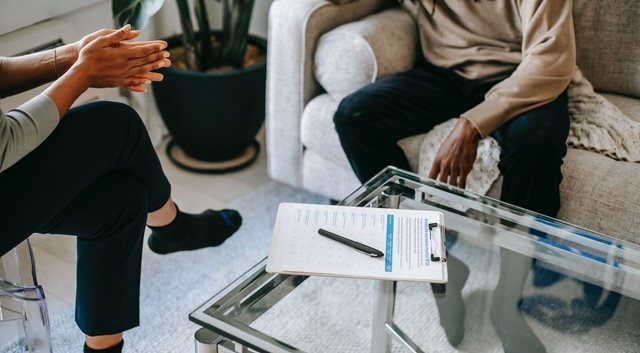Tips For Maximizing Your Therapy Sessions
Therapy is a valuable tool that can help you address your mental health concerns and reach a more healthy lifestyle. But you need to make sure that you are getting the most out of your sessions.
A lot of people feel uncomfortable opening up to their therapist, but it’s important to trust them. They have experience and expertise that can help you overcome your issues.
Whether you’re meeting face-to-face or virtually, being prepared for your therapy sessions can make all the difference.
Aside from making sure you have everything you need for the session, you should also be ready to discuss what you’re looking for in therapy.
This can be a difficult task, but it will help you get the most out of your time with your therapist.
Whether you’re just starting out or have been in therapy for awhile, bringing a notepad to therapy can help make the most of your time. You might also want to set aside some time before and after your session to review your notes and process what you learned.
Some therapists believe it’s disrespectful to take notes during sessions, especially when they’re trying to listen to you fully. Others think it’s important to capture what they hear and think about you, which can be helpful when reviewing your sessions later.
Whether you’re going into your first session or just want to get the most out of your therapy sessions, it’s important not to be afraid to ask questions.
This will help you and your therapist get to know each other better and build trust. Open-ended questions are also more likely to encourage a longer, thoughtful conversation.
Therapy can be a busy and demanding process, so it’s easy to forget your assignments between sessions. That’s why it’s important to keep up with them.
If you find yourself struggling to complete your homework, talk to your therapist about it. They may be able to explain the importance of the tasks or tailor them to your preferences.
Mindfulness is a way of focusing on what is happening in your body at any given moment, no matter how busy you are. This can include noticing your breath, an ache in your back, or how your knees feel when you walk.
Incorporating mindfulness into your sessions can help you and your client to become more present with their emotions. Bringing more awareness to their experience can decrease emotional reactivity and foster better self-regulation.
Taking the time to get to know your therapist and establishing a trusting relationship will make all of the difference in bringing about the changes you want.
Therapy sessions are a chance to talk openly about everything that's going on in your life -- good and bad. Rather than avoiding topics that may feel uncomfortable, it's important to take them up and talk about them.
When you are working through your issues, you should always take advantage of the tools and resources your therapist has available to you.
Whether it is through research, reading, seminars or workshops, a committed therapist is constantly growing their knowledge. So, don’t be afraid to ask them if they know something you’re curious about.
Therapy is a place to share emotions and experiences you might not otherwise discuss. It’s also a chance to ask your therapist any questions that may arise.
When you first start seeing a therapist, it can feel a little nerve-wracking to disclose too much information. It’s completely normal to feel that way, but don’t let it get to you.
One of the biggest challenges in therapy is keeping the conversation going. People often feel the urge to talk about everything that’s on their mind or to bring up things they’ve recently experienced.
This can lead to awkward silences. It’s important to be patient and wait for the client to find the right words to express their thoughts.
If you’re willing to change, it can be easier to make positive life changes.
The ability to adapt is an invaluable quality, especially when a situation unexpectedly changes.
Having the courage to step outside your comfort zone is a great skill to have and can be very helpful in therapy.

